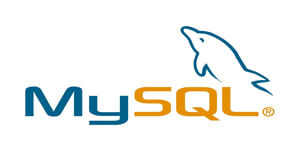Secure Your Financial Future
Bookkeeping is the backbone of any successful business. Accurate financial records not only help in tracking income and expenses but also play a crucial role in decision-making, tax compliance, and long-term planning. However, no matter how meticulously you maintain your financial records, disaster can strike at any moment, and without proper backup measures in place, your precious bookkeeping data could be lost forever.
The Importance of Backing Up Bookkeeping Data
Data Loss Prevention
Data loss can occur due to various reasons, including hardware failures, accidental deletions, software glitches, and even natural disasters like fires or floods. By regularly backing up your bookkeeping data, you create a safeguard against such unexpected events.
Business Continuity
In the event of data loss, having a backup ensures that your business can continue to operate smoothly. Without accurate financial records, you may struggle with tax filings, payroll, and making informed financial decisions.
Legal and Regulatory Compliance
Businesses are required to retain financial records for a specific period. Losing these records can lead to legal and financial consequences. Backing up data helps you stay compliant with these regulations.
Peace of Mind
Knowing that your financial data is securely backed up provides peace of mind. You won’t have to worry about losing critical information that could impact your business’s bottom line.
Now that we understand the importance of backing up bookkeeping data, let’s explore the steps to do it effectively.
Steps to Back Up Your Bookkeeping Data
Choose a Reliable Backup Solution
There are various methods and tools available for backing up data, including cloud storage, external hard drives, and dedicated backup software. Choose a solution that best fits your business needs and budget.
Establish a Backup Schedule
Determine how often you need to back up your data. For most businesses, daily or weekly backups are sufficient. The frequency may vary depending on the volume of transactions and the criticality of the data.
Select What to Back Up
Identify the specific bookkeeping data that needs to be backed up. This typically includes financial statements, transaction records, receipts, and tax-related documents. Ensure that you back up all relevant files and folders.
Use Encryption
Security is paramount when it comes to backing up sensitive financial data. Encrypt your backups to protect them from unauthorized access. Many backup solutions offer encryption features that you can enable.
Test Your Backups
Periodically test your backups to ensure they can be successfully restored. This practice helps you verify the integrity of your backup data and ensures that you can recover it when needed.
Implement Redundancy
Consider creating redundant backups, meaning having multiple copies stored in different locations. This provides an extra layer of protection against data loss.
Automate the Backup Process
Manual backups are prone to human error and may be forgotten. Automate the backup process to ensure consistency and reliability. Most backup solutions offer scheduling options.
Store Offsite
Store at least one copy of your backups offsite, away from your primary business location. This protects your data from physical damage, such as fire or theft.
Keep Backup Documentation
Maintain documentation of your backup procedures, including schedules, locations, and encryption keys. This documentation is valuable in case you need to recover your data.
Backing up your bookkeeping data is not just a best practice; it’s a necessity for the financial health and continuity of your business. By following the steps outlined in this guide, you can ensure that your financial records are secure, compliant with regulations, and readily available when you need them. Don’t wait until disaster strikes; start implementing a robust backup strategy today to safeguard your financial future.

Momentum Bookkeeping Ltd
Mentieth House, 29 Park Circus, Glasgow, G3 6AP
Call. 0141 375 1240
Email. info@mvbooks.co.uk





